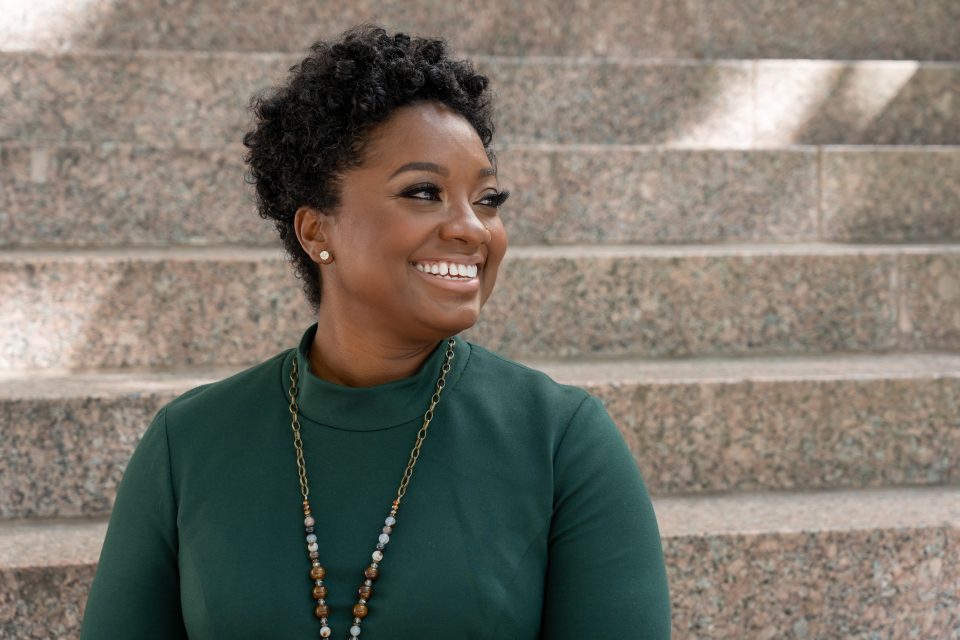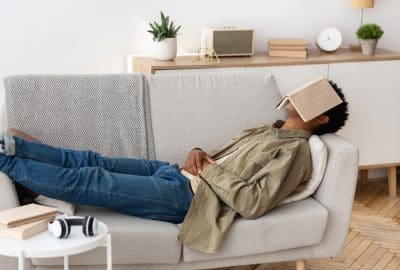
Dr. LaKesha Legree is on a mission to end the stigma and shame of mental health awareness and help others live their very best lives. She is a powerhouse success story who’s using her platform to show others who may be suffering that it’s possible to fight off anxiety or severe depression and live your best life. Through embracing her own truth and seeing so many commonalities of her truth in her physician colleagues, Legree was motivated to open her own Ketamine Clinic for depression and chronic pain named Elev8 MD.
Elev8 MD Wellness Center takes a holistic approach to improving each client’s quality of life. The wellness center is a place of respite care for all walks of life, including the executive, stay-at-home parent, business owner, lawyer or doctor and offers a variety of services to meet each individual customer’s needs.
Rolling out spoke with Dr. Legree about how she determined her career path, what inspires her to show up at work every day and what it means to be a health professional in today’s times.
How did you determine your career path?
I always dreamed of becoming a physician since being a young girl as I was heavily influenced by my own pediatrician and TV dad, Dr. Heathcliff Huxtable, every Thursday night. My current career path as the medical director and owner of Elev8 MD Wellness Center in Charlotte, North Carolina, is the direct result of a tumultuous job dispute during which I lost a colleague to suicide. After many days and months of reflection about my past, I remembered that he was not the first colleague during both residency training and private practice that was lost to suicide. Having had a personal experience with depression, I realized there was a void for high functioning professionals and executives to seek confidential, individualized help for mental illness, without the fear of judgment or career suicide. There lacked a facility that could speak to health care providers, attorneys, C-suite executives, and other professionals working in high-stress, high-performance occupations who were masquerading to fulfill work-related obligations all the while inwardly suffering from severe depression.
Describe your role.
I am a general anesthesiologist who uses an anesthetic called Ketamine to help patients suffering from treatment-resistant depression, suicidality and chronic pain syndromes such as CRPS — complex regional pain syndrome, RSD — reflex sympathetic dystrophy) and fibromyalgia. This is done on an off label, outpatient basis, in a posh, spa-like, clinical setting.
Describe a typical work day/week.
I am at my clinic every day, three weeks of every month infusing Ketamine and performing ultra sound guided procedures for joint related pain and migraines. The remaining week of each month I am a traveling anesthesiologist working in various hospitals across the country. This is known as locum’s anesthesia.
What inspires you to show up at work every day?
I am literally saving lives every single day. To watch the transformation of an individual whom society would perceive as being far removed from depression or suicide because of their career and socioeconomic status is amazing, beautiful, breath-taking and rewarding each and every single time. Being able to offer hope where there is none motivates me to do what I do day in and day out.
What are two new developments in your professional area?
We offer cutting edge treatment plans for chronic pain, suicidality and treatment-resistant depression using an anesthetic medication known as Ketamine. Although off label, this treatment has been touted and supported by psychiatrists and other mental health providers across the country.
The second new development that I am working on is offering an integrative, yet comprehensive approach to mental health and chronic pain. Within one facility we offer services and treatment plans by licensed psychologists, licensed acupuncturists, licensed massage therapists, life coaches, as well as vitamin and nutritional therapies. This is in conjunction with intravenous Ketamine being administered by a licensed anesthesiologist. Collectively these services provide a wholesome approach, combining eastern and traditional western medicine, towards healing with respect to mental illness and chronic pain.
Name two things people should know about your profession.
– The training is time-intensive, it can be stressful at times, however, it is extremely rewarding.
– I am literally either saving life or maintaining life whether it be in the operating room or in my clinic.
What role does technology play for health professionals today?
Within my realm specifically, it helps my team connect with a potential patient via social media who may hide behind the screen of his or her smartphone or computer because of the fundamental etiology of their suffering: treatment-resistant depression and suicidality. It also provides tools for patients to work on their mental health daily whether in the form of a mindfulness or meditation app or in some instances virtual counseling.
If you could change one thing about the world, what would it be?
I wish people would be a little more forgiving of themselves and of those around them. If we could offer ourselves and each other just a tad bit more grace, then quite possibly self-love, self-care and self-appreciation would be enhanced and subsequently, the idea of respect and love for fellow brethren in one’s surroundings would be enhanced as well. Just maybe, with this, the level of violence against self and toward each other would decline.
Describe your area of health specialty and what our community needs to understand about your role.
General anesthesiology involves the total care of a patient before, during and after surgery, ensuring safety every step of the way. I am the patient’s advocate in the operating room. I facilitate optimal conditions for the surgeon to operate while also maintaining the health of all of the body’s systems during the surgery. Subsequently, I wake the patient up when the surgery has concluded and I continue managing their overall post-operative care inclusive of pain control. At my clinic patients walk through my doors often feeling debilitated and defeated. Through our integrative approach, we address multiple treatment avenues until the fog of depression has lifted and the patient has come out of the darkness so to speak.
As a Black female physician, it is imperative that I inform the masses within our community that it is OK to not be OK at times. We don’t have to have it all together all the time and we must learn to lose sight of others perceptions of us. Finally, for as much as we pray over difficult situations, we must learn to accept that the Lord created mental health providers along with mental health pharmaceuticals who are available to help get you through the transition of a difficult situation.
Name your favorite role models for success?
Jesus Christ, the author Valerie Burton, Jada Pinkett Smith and my own mother.
Finish these sentences:
I am committed to… providing hope where there is none.
I work to … make a difference by being transparent, honest and hard-working; saving one life at a time both literally and figuratively.
The best way to healthy lifestyle changes are to… start small and remain consistent while recognizing that change will not happen right away. It is also very important to set realistic expectations. If you begin with realistic expectations then the gap that exists between those expectations and reality will be small. However, if you do not begin with realistic expectations then that gap widens, vulnerability increases and anxiety, fear and depression can set it.
Annual checkup and visits to assess your physical health such as blood pressure and blood sugar and cholesterol are … just as important as mental assessments to identify if you are at risk for any type of mental illness such as depression, generalized anxiety disorder or post-traumatic stress disorder.
















